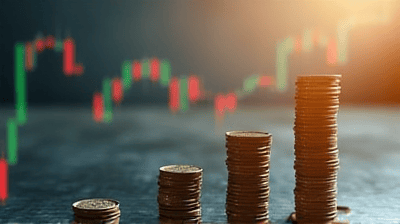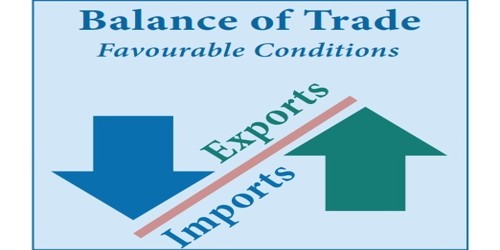
Forex trading has gained popularity over the years, with more individuals and institutions participating in it. Understanding the global trading sessions is crucial for successful forex trading. The forex market is the largest financial market globally, with several participants from different parts of the world.
The foreign exchange market is active 24 hours a day, five days a week. It is divided into four major trading sessions: the Sydney session, the Tokyo session, the London session, and the New York session. Each of these sessions has unique characteristics that traders must understand to make informed trading decisions.
Key Takeaways
- The foreign exchange market is the largest financial market globally.
- The forex market is active 24 hours a day, five days a week.
- Understanding the global trading sessions is crucial for successful forex trading.
What is the Forex Market?
The Forex Market, also known as the Foreign Exchange market, is the largest financial market in the world. It is where currencies are bought and sold, with the aim of making a profit from the fluctuations in exchange rates.
Currency trading, also known as Forex Trading, is the practice of buying and selling currencies in pairs. For example, traders may buy Euros and sell US Dollars, or vice versa. The value of these currencies is constantly changing, making the Forex Market a dynamic and exciting platform for traders.
The Forex Market is decentralized, meaning that there is no central exchange where all transactions take place. Instead, traders around the world use electronic communication networks (ECNs) to trade with one another.
Forex Trading vs. Stock Trading
While the Forex Market may seem similar to the stock market, there are some key differences. Unlike the stock market, which is open for trading during limited hours each day, the Forex Market is open 24 hours a day, 5 days a week. This makes it easier for traders to fit currency trading around their schedule.
Another difference is the level of liquidity in the Forex Market. The Forex Market is the most liquid financial market in the world, with trillions of dollars traded every day. This means that traders can enter and exit positions quickly and easily, without worrying about being stuck in a trade.
The Role of the Forex Market in International Trade
The Forex Market plays a crucial role in international trade, as it enables businesses and individuals to exchange currencies and conduct transactions across borders. For example, a business in the United States that imports goods from China will need to pay for those goods in Chinese Yuan. The Forex Market allows the business to exchange US Dollars for Chinese Yuan, making international trade possible.
Overall, the Forex Market is a dynamic and exciting platform for traders who are interested in currency trading. Understanding its mechanics and intricacies is key to success in this fast-paced market.
How Does the Forex Market Work?

To understand how the forex market works, it's essential to know the key players involved. Forex brokers act as intermediaries between traders and the market, providing access to trading platforms that allow traders to buy and sell currencies. There are also market makers, who provide liquidity by buying and selling currencies in large quantities.
The forex market operates 24 hours a day, five days a week, across different time zones. It's divided into three trading sessions: the Asian, European, and North American sessions. Each session has its own characteristics and trading volume, with the European session being the most active.
Forex Brokers
Forex brokers are companies that facilitate currency trading for individuals and institutions. They offer trading platforms that enable traders to execute buy and sell orders and access market data and news. Some brokers also provide educational resources, such as webinars and trading guides, to help traders improve their skills.
When choosing a forex broker, it's important to consider factors such as regulation, fees, spreads, and customer support. Some reputable forex brokers include TD Ameritrade, IG, and FOREX.com.
Forex Platform
A forex platform is a software application that allows traders to access the forex market and execute trades. These platforms come in different forms, such as desktop, web-based, and mobile apps. They offer various features, such as charting tools, technical indicators, and automated trading.
Some popular forex platforms include MetaTrader 4, cTrader, and TradingView. Traders should choose a platform that suits their trading style and preferences and provides reliable and secure trading.
Overall, the forex market is a dynamic and complex arena that requires a deep understanding of its mechanics and players. By working with reputable forex brokers and choosing the right trading platform, traders can navigate the market with confidence and maximize their profits.
The Importance of Forex Analysis
Forex analysis is an essential tool for success in currency trading. By analyzing the forex market, traders can make informed decisions about when and how to enter or exit trades.
There are two main types of forex analysis: technical analysis and fundamental analysis. Technical analysis involves studying price charts and using various indicators and tools to identify trends and patterns in the market. Fundamental analysis, on the other hand, involves analyzing economic and political factors that can impact currency values.
Both types of analysis have their strengths, and many successful traders use a combination of both approaches. Technical analysis can help traders identify entry and exit points, while fundamental analysis can provide a broader understanding of long-term trends and market sentiment.
When conducting forex analysis, it's important to use a reliable source of market data. Traders can access real-time market data through their forex broker's platform or through third-party services.
The Importance of Forex Analysis in Currency Trading
Forex analysis is crucial for guiding trading decisions and managing risk. By analyzing market trends and indicators, traders can identify opportunities to enter trades at favorable prices and exit trades before experiencing significant losses.
For example, technical analysis can help traders identify support and resistance levels, which can provide indication of when to buy or sell a currency pair. Similarly, fundamental analysis can help traders anticipate market-moving events, such as changes in interest rates or political developments, which can impact currency values.
Ultimately, successful forex trading requires a combination of skill, strategy, and analysis. By incorporating both technical and fundamental analysis into their trading approach, traders can make more informed decisions and increase their chances of success in the competitive forex market.
Utilizing Forex Signals for Trading Success

Successful currency trading relies heavily on the ability to make informed decisions based on accurate market data. Forex signals are one of the tools that traders use to obtain this data. Forex signals are essentially buy or sell alerts that are generated by experienced traders or automated trading systems. They provide valuable insights into the movements of the forex market and can help traders make profitable trades.
Forex signals are usually delivered through various mediums, such as email, SMS, or through a trading platform. They include information on the currency pair being traded, the entry and exit points, and the stop loss and take profit levels.
There are many benefits to using forex signals. Firstly, they save traders time and effort by providing them with the necessary market information. This is particularly useful for traders who are new to the forex market and don't yet have the skills or experience to analyze market data effectively. Secondly, they provide traders with a broader perspective of the market, which enables them to make more informed trading decisions. Lastly, they can help traders improve their profitability, as they often provide accurate and timely information on market trends and movements.
The Pros and Cons of Using Forex Signals
While forex signals can be a valuable tool for traders, they do have their pros and cons. Some of the advantages of using forex signals include:
- Forex signals save time and effort by providing traders with the necessary market information;
- They provide a broader perspective of the market, enabling traders to make more informed trading decisions;
- They can help traders improve their profitability by providing accurate and timely information on market trends and movements.
However, there are also some drawbacks to using forex signals, such as:
- They can be costly, particularly if traders subscribe to multiple signal providers;
- They are not always accurate and can lead to losses if traders rely on them too heavily;
- They can reduce a trader's ability to develop their own analytical skills, which can be a hindrance in the long run.
Choosing a Forex Signal Provider
Choosing the right forex signal provider is crucial for success in the forex market. Traders should look for signal providers that have a proven track record of accuracy and profitability. They should also ensure that the signal provider offers clear and concise information, and that their signals are delivered in a timely manner. Additionally, traders should be wary of signal providers that offer 'guaranteed profits' or promise unrealistic returns.
Conclusion
Forex signals can be a valuable tool for traders in the forex market, providing them with important information on market trends and movements. However, traders should be cautious when using forex signals, as they can be costly and not always accurate. Choosing the right signal provider is also crucial for success in the forex market. By using forex signals wisely, traders can improve their profitability and achieve greater success in the dynamic world of currency trading.
Effective Forex Strategies for Profitable Trades
When it comes to currency trading, having the right strategy can make all the difference. Here are some effective forex strategies that can help traders maximize profits:
Trend Following
One popular strategy in forex trading is trend following. This involves identifying trends in the market and trading in the direction of those trends. This strategy relies heavily on technical analysis and can be successful in both short-term and long-term trading.
Breakout Trading
Another effective forex strategy is breakout trading. This involves identifying key levels of support and resistance and trading when the price breaks out of these levels. This strategy can be effective in volatile markets and typically involves using technical analysis to identify these key levels.
Range Trading
Range trading is a forex strategy that involves identifying key levels of support and resistance and trading within that range. This strategy is often used in markets that are consolidating and can be effective in both short-term and long-term trading.
It's important to note that there is no one-size-fits-all strategy in forex trading. Traders should experiment with different strategies and find the one that works best for them.
"A good trader knows that one of the biggest keys to success in forex trading is having a solid strategy in place."
| Strategy | Advantages | Disadvantages |
|---|---|---|
| Trend Following | - Can be effective in both short-term and long-term trading - Relies on technical analysis, which can provide clear entry and exit signals |
- False breakouts can occur - Can be difficult to identify trends in choppy markets |
| Breakout Trading | - Can be effective in volatile markets - Involves clear entry and exit signals based on key levels of support and resistance |
- False breakouts can occur - Can be difficult to identify key levels of support and resistance |
| Range Trading | - Can be effective in consolidating markets - Involves clear entry and exit signals based on key levels of support and resistance |
- Can be difficult to identify key levels of support and resistance - Profits may be limited in range-bound markets |
As with any trading strategy, it's important to manage risk and practice proper money management techniques. Traders should always use stop-loss orders and never risk more than they can afford to lose.
The Importance of Forex Education for Traders

Forex education is critical for traders who want to succeed in the dynamic and volatile world of currency trading. It is essential to understand the fundamental concepts of the forex market and learn from experienced traders to develop a strong foundation and continuously improve trading skills.
One of the most important aspects of forex education is understanding the forex market's unique characteristics. Unlike the stock market, which operates during set hours each day, the forex market operates 24 hours a day, five days a week. It is a global market, with traders from all corners of the world participating, making it the most liquid financial market in the world. Understanding the global trading sessions is critical for traders, as it helps them identify the best times to trade and the currency pairs to focus on.
The Benefits of Forex Education
Forex education provides traders with a comprehensive understanding of the various aspects of currency trading, including analysis techniques, trading strategies, and risk management practices. Some of the benefits of forex education include:
- Developing a deep understanding of the forex market and the factors that influence currency prices
- Gaining knowledge of different tools and methods to analyze the market and make informed trading decisions
- Learning effective trading strategies to maximize profits and minimize risk
- Understanding the importance of risk management and how to implement it in trading strategies
- Learning from experienced traders and building a network of contacts in the forex community
How to Get Forex Education
Forex education is widely available, with numerous resources available for traders of all skill levels. Some of the best ways to get forex education include:
- Reading books and online resources on forex trading and the forex market
- Taking online courses or attending live webinars offered by reputable forex brokers and trading educators
- Participating in forex forums and online communities to connect with experienced traders and learn from their insights and experiences
- Opening a demo trading account to practice and experiment with different trading strategies in a risk-free environment
The Bottom Line
Forex education is a crucial component of becoming a successful trader, and it requires a continuous effort to stay up to date on the latest trends and developments in the market. By investing in forex education, traders can gain the knowledge and expertise necessary to make informed trading decisions, minimize risk, and maximize profits.
Choosing the Right Forex Broker and Platform
When it comes to forex trading, choosing the right broker and platform is crucial. The forex market is highly competitive, and selecting the right broker and platform can be the difference between success and failure. In this section, we will discuss some important factors to consider when selecting a forex broker and platform.
Regulation
Regulation is one of the most critical factors to consider when selecting a forex broker. A regulated broker ensures that your funds are safe and that you are trading with a legitimate company. The regulatory body varies from country to country, and it's important to select a broker regulated by a respected regulatory body such as the Financial Conduct Authority (FCA) in the UK, the Australian Securities and Investments Commission (ASIC) in Australia, or the Commodity Futures Trading Commission (CFTC) in the US.
Customer Support
Good customer support is essential when selecting a forex broker. You need to be able to contact your broker when you have a problem or need assistance. Ensure that your broker offers multiple ways to reach customer support, such as phone, email, and live chat. Also, check their customer support hours and response times.
Trading Tools
The right trading tools can help you make better trading decisions and improve your profitability. Some brokers offer proprietary trading tools, while others offer third-party tools like MetaTrader 4 or 5. Look for brokers that offer a wide range of trading tools such as technical indicators, economic calendars, and news feeds.
Trading Platform
The trading platform is the software that you use to place trades, view charts, and analyze the market. A good trading platform should be user-friendly and offer an intuitive interface. It should also be stable and reliable, allowing you to execute trades quickly and efficiently. Some popular trading platforms include MetaTrader 4 and 5, cTrader, and NinjaTrader.
Conclusion
Choosing the right forex broker and platform is crucial for success in the forex market. Ensure that you select a regulated broker, offer good customer support, provide a wide range of trading tools, and a user-friendly trading platform. By doing so, you'll be on the right path to achieving your trading goals.
Mastering the Forex Market: Tips and Best Practices
Successfully trading in the forex market requires a combination of knowledge, skills, and discipline. By following these tips and best practices, traders can improve their trading strategies, profitability, and overall success in the currency trading arena.
Continuous Learning and Forex Education
Forex education is critical for traders looking to improve their skills and remain up-to-date with the latest market trends and insights. It is essential to stay informed about economic indicators, news, and other factors that may affect currency prices.
Attending trading webinars, reading trading books, and following experienced traders can help traders expand their knowledge base and gain valuable insights into effective trading strategies. Additionally, traders should always be willing to learn and ask questions, both within their trading communities and through dedicated forex training courses.
Utilizing Effective Forex Strategies
Effective forex strategies are the backbone of successful trading. While there are many trading approaches traders can use, such as trend following, breakout, and range trading, it is essential to remember that there is no one-size-fits-all strategy.
Traders must be willing to experiment with different strategies and techniques and keep track of their performance. Additionally, traders should be willing to adjust their strategies as market conditions change.
Utilizing Forex Analysis
Forex analysis is a critical component of successful trading. It involves evaluating market data to identify trends and patterns and make informed trading decisions.
There are two types of forex analysis: technical and fundamental. Technical analysis involves analyzing charts and indicators to find trading opportunities, while fundamental analysis involves analyzing economic and market data to understand currency prices' underlying factors.
Traders must use both forms of analysis to gain a well-rounded understanding of the market and make informed trading decisions.
Choosing the Right Forex Broker and Platform
Choosing the right forex broker and trading platform is crucial for successful trading. Traders should consider factors such as regulation, customer support, trading tools, and fees when selecting a broker.
The trading platform should also be user-friendly, reliable, and offer a range of trading tools and resources.
Discipline and Money Management
Discipline and money management are essential for successful trading. Traders must have a clear trading plan and risk management strategy in place while avoiding emotional decision-making.
Traders should also limit their trading capital and maintain a consistent trading approach to prevent excessive losses.
Conclusion
By following these tips and best practices, traders can improve their trading strategies, skills, and success in the forex market. Constant learning and analysis, effective strategies, choosing the right broker and platform, and discipline and money management are essential elements of profitable and sustainable trading.
Conclusion
As we conclude our discussion, it is clear that understanding the global trading sessions in the forex market is crucial for successful currency trading. Traders who have a fundamental understanding of the forex market, its operations, and trading strategies have a higher chance of profitability in the market.
It is also important to note that forex analysis plays a significant role in making informed trading decisions. By utilizing different analysis techniques such as technical and fundamental analysis, traders can make accurate predictions and minimize losses.
Furthermore, taking the time to learn about different forex strategies and continuously improving trading skills is essential for achieving success in the currency trading world. Additionally, selecting the right forex broker and trading platform is critical to ensuring a smooth trading experience.
By following the tips and best practices discussed in this article, traders can elevate their trading game and improve their profitability in the dynamic world of forex trading.
Stay Informed and Keep Learning
Lastly, it is important to continuously educate oneself about the forex market. Stay updated on the latest news and trends and learn from experienced traders. Attend webinars and seminars, read books, and take online courses to improve your trading skills.
Remember, the forex market is constantly changing, and keeping up with these changes is the key to success. Happy trading!
FAQ
What is the forex market?
The forex market, also known as the foreign exchange market, is where currencies are traded. It is the largest financial market in the world, with trillions of dollars being exchanged daily.
How does the forex market work?
The forex market operates 24 hours a day, five days a week, allowing traders to buy and sell currencies at any time. It functions through a network of banks, financial institutions, and individual traders, who speculate on the value of one currency against another.
Why is forex analysis important?
Forex analysis is crucial for making informed trading decisions. It involves studying various factors, such as economic indicators, market trends, and geopolitical events, to predict currency price movements and identify profitable trading opportunities.
What are forex signals?
Forex signals are alerts or recommendations generated by professional traders or trading systems that indicate potential trading opportunities. Traders can use these signals to guide their trading decisions and increase their chances of success.
What are some effective forex trading strategies?
There are various forex trading strategies, including trend following, breakout, and range trading. Each strategy has its own approach and risk management techniques. It's essential to choose a strategy that aligns with your trading style and risk tolerance.
Why is forex education important?
Forex education is crucial for traders to develop the necessary knowledge and skills for successful trading. It helps traders understand market dynamics, analyze charts and indicators, and implement effective trading strategies.
How do I choose the right forex broker and platform?
When selecting a forex broker and platform, consider factors such as regulation, customer support, trading fees, available trading instruments, and user-friendly interface. It's important to choose a reputable broker that fits your trading needs.
What tips can help me master the forex market?
To master the forex market, focus on continuous learning, practice disciplined risk management, and develop a trading plan. Stay updated with market news and analysis, seek guidance from experienced traders, and be patient and adaptable in your trading approach.








